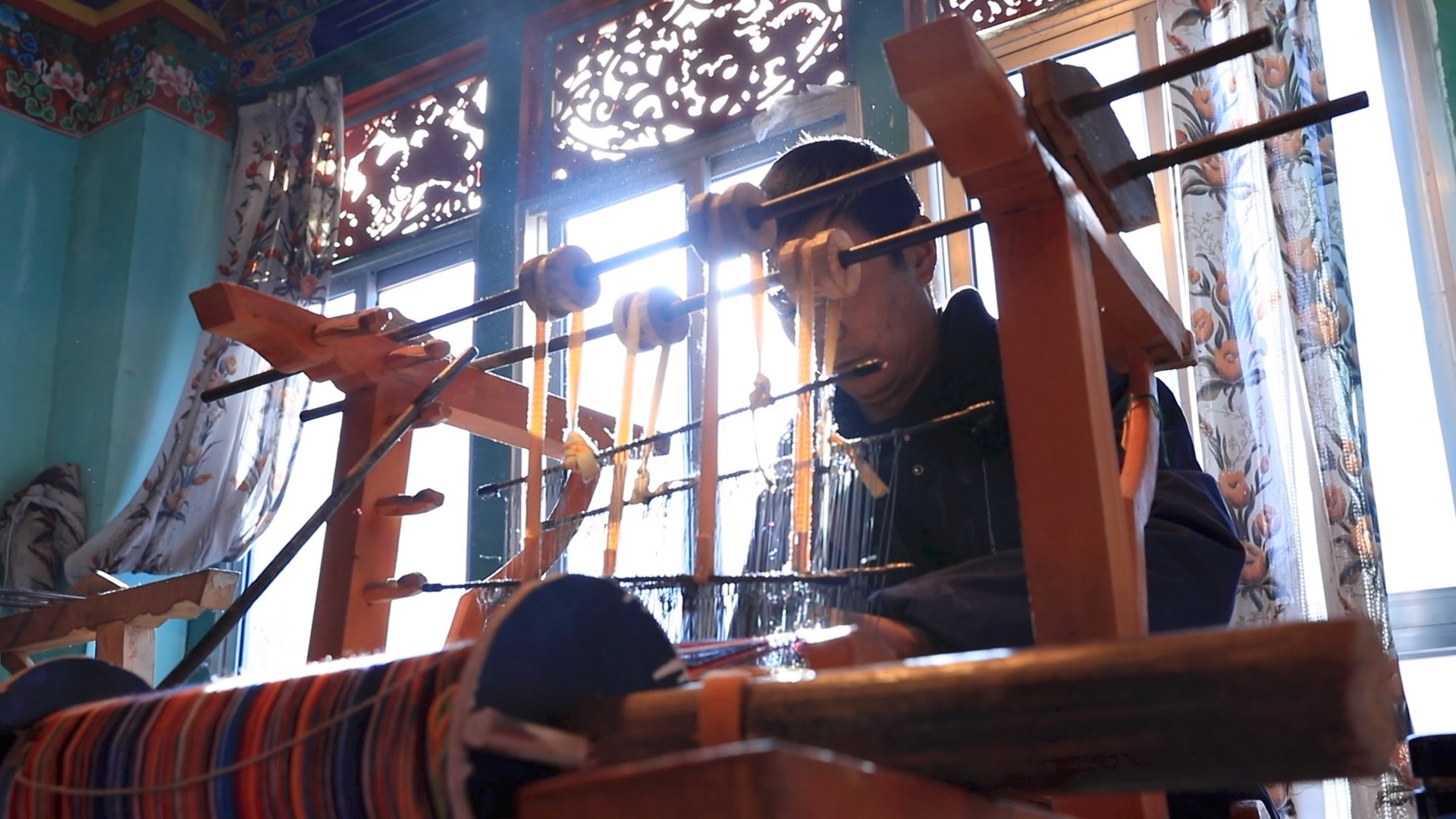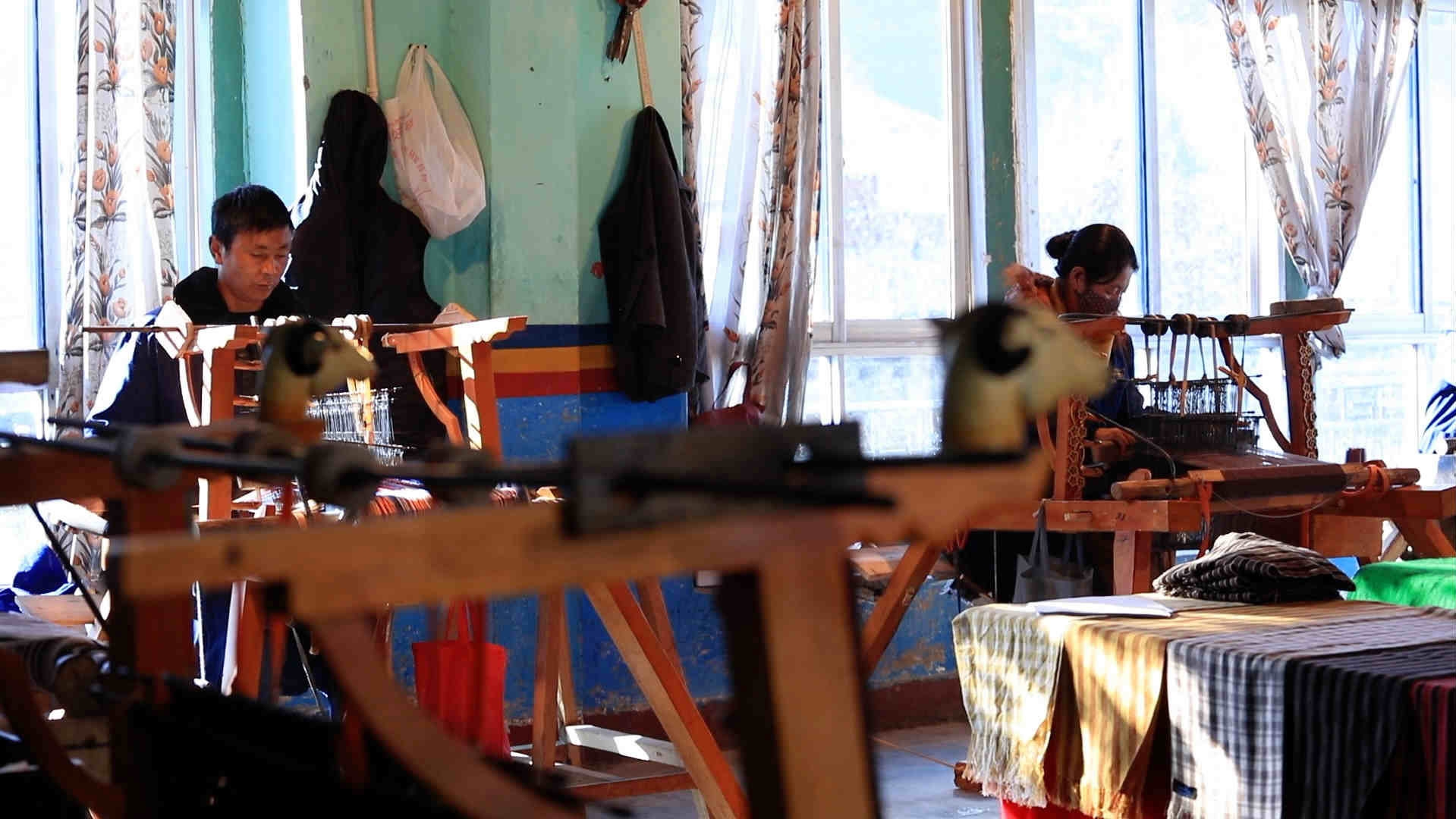
Business
22:07, 12-Dec-2017
Poverty relief in Tibet – episode four: Government’s financial aid boosts business
Wang Zheng, Yang Xinmeng, Meng Fanke

Huaji Hand Knitting Cooperative in Shannan City, southwest China’s Tibet Autonomous Region, helps people weave better lives for themselves by knitting Tibetan outfits, scarves and Thangka paintings.
The cooperative employs 78 locals, mostly from poor households – but such an establishment would not have been possible without the government's support.
The head of the cooperative said the coop received a lot of help from the government during its development, noting that the initiative helps authorities with their unremitting efforts to alleviate poverty in the region.
The local government provided 17.4 million yuan (2.6 million US dollars) in funds to build the first phase of the Huaji’s factory, while the cooperative spent five million yuan (76,000 US dollars), Zhang Weichun, executive deputy governor of Nedong District said.
More cooperation followed. For the construction of the second phase of the plant, the local government covered a quarter of the total funding. As for the rest of the capital, local authorities helped Huaji approach banks for loans, and took the responsibility of paying the interest on behalf of the company on one condition: the cooperative needed to hire people in need.

CGTN Photo
CGTN Photo
Huaji is just one example of how the local governments are using financial leverage to help alleviate poverty. Nedong District has invested 244 million yuan (36.9 million US dollars) in supporting industries that help reduce poverty. Their contribution is expected to benefit over 2,700 people by offering them jobs, which means they could live decently.
Shannan's municipal government invested 1.3 billion yuan (196 million US dollars) in 176 industrial programs in 2016, which helped increase the income of more than 11,000 people in straitened circumstances.
The government has also injected 273 million yuan (41 million US dollars) into commercial banks, which in turn generated two billion yuan (302 million US dollars) of credit for local industries. This will further help the development of companies like Huaji Cooperative, and enable households in need to make ends meet.
2539km

SITEMAP
Copyright © 2018 CGTN. Beijing ICP prepared NO.16065310-3
Copyright © 2018 CGTN. Beijing ICP prepared NO.16065310-3